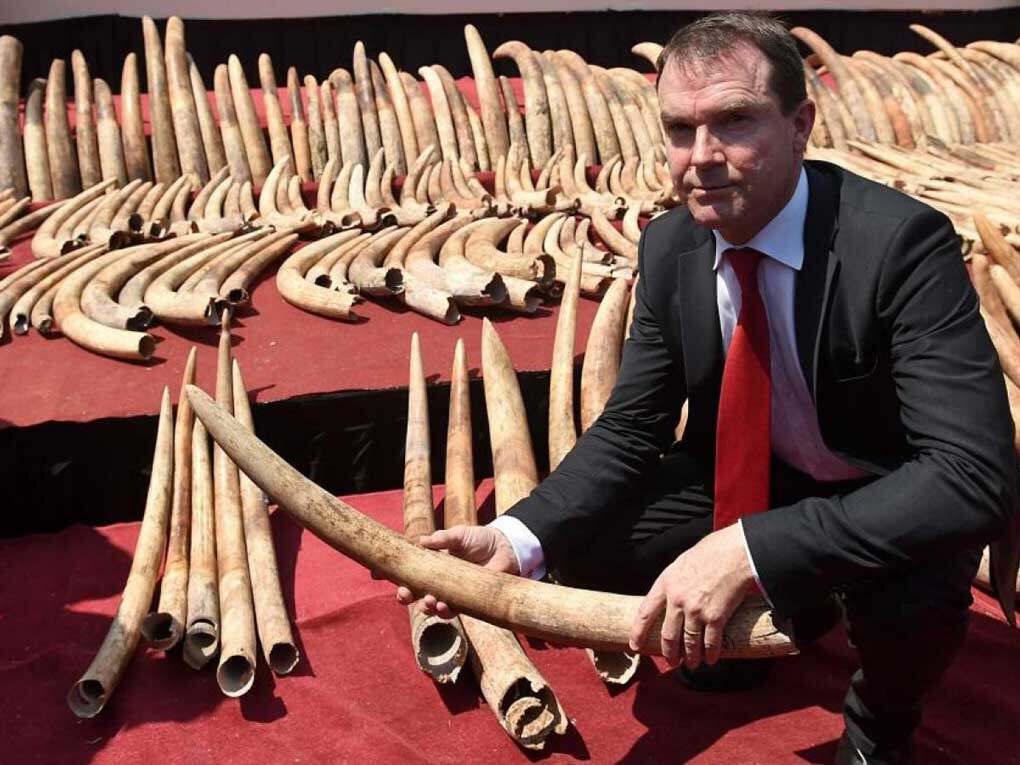Wildlife trafficking is a serious global challenge with severe consequences. Despite the negative impact on the planet’s biodiversity, climate and ecosystem, no global agreement yet exists to combat this highly destructive crime.


To explain what is – and isn’t – being done in the field of international law when it comes to wildlife trafficking and other environmental crimes, John Scanlon AO will hold a free public lecture on Monday 17 July at the University of Adelaide.
An expert in the field of environmental law, policy and wildlife crime, Mr Scanlon will reveal startling facts about the trafficking of wild animals and plants, including their parts and derivatives. He will touch upon the broader concept of environmental crimes, which includes pollution-related crimes and illegal clearing of habitat.
Mr Scanlon has worked at the local, national, and international levels as an environmental lawyer, leader, and policymaker. He said, “There are growing calls at international level to scale up efforts to tackle wildlife trafficking, as well as a broader suite of crimes that affect the environment.”
“These destructive environmental crimes undermine efforts to protect biodiversity, combat climate change, and even to prevent pandemics. For example, 1.7 million undiscovered viruses are thought to exist in wild animals, about half of which could spill over to people, indicating that the impact of wildlife trafficking could potentially be catastrophic.”
“There are growing calls at international level to scale up efforts to tackle wildlife trafficking, as well as a broader suite of crimes that affect the environment.”
-John Scanlon AO
Six thousand species protected under the global agreement CITES – Convention on International Trade in Endangered Species of Wild Fauna and Flora – are illegally trafficked each year. In addition, millions of other unprotected species, especially timber and fish, are traded globally.
“The costs of wildlife trafficking and environmental crimes are valued at US $1-2 trillion annually, based on the impact on ecosystems,” said Mr Scanlon.
Efforts to change this are being made, with calls for a new international agreement to prevent and combat wildlife trafficking. This agreement would take the form of a new Protocol under the UN Convention against Transnational Organised Crime.
Joined by other experts in his field, Mr Scanlon will discuss how Australia is contributing to the global effort against environmental crimes, both internationally and domestically.
This in-person lecture is proving very popular so early registration to attend is advised.
Speakers
John E Scanlon AO is an Australian attorney who has held senior positions with Australian and international environmental organisations, in the fields of environment, development, and elephant conservation, including as Secretary General of CITES from 2010-2018 and founding Chair of the Global Initiative to End Wildlife Crime.
Q&A panel session including Professor Andrew Lowe, Interim Director, Environment Institute; Dr Phillipa McCormack, Co-Director, ENREL and Vice President of the National Environmental Law Association (NELA), and Dr Adam Toomes, Ecology and Evolutionary Biology, School of Biological Sciences.
When
Monday 17 July, 5.30pm–6.30pm.
Where
The Braggs Lecture Theatre, The University of Adelaide, The Braggs Building, North Terrace Campus.
Free ticket
Click here to register.






































